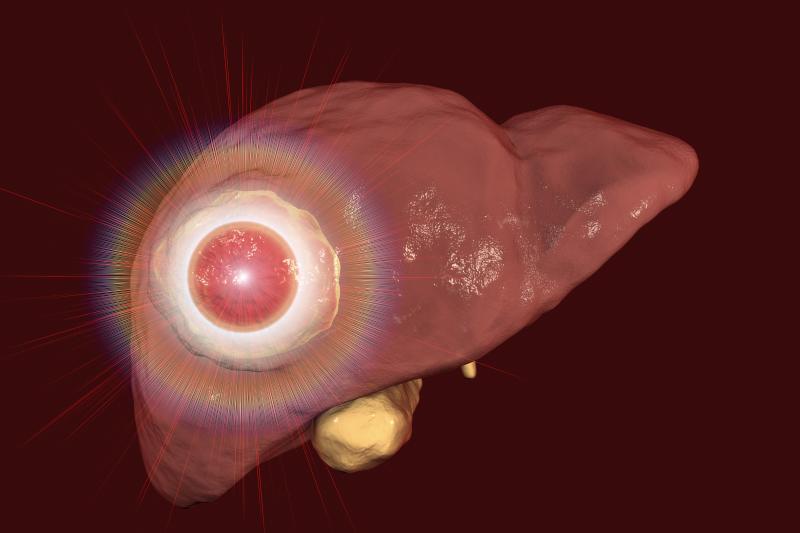
Treatment with sorafenib plus hepatic arterial infusion chemotherapy (SoraHAIC) for advanced hepatocellular carcinoma (HCC) has been shown to be safe and effective in a recent study.
The investigators performed a systematic search of The Cochrane Library, PubMed, and Embase databases, and divided the major outcomes in patients with advanced HCC into SoraHAIC group and sorafenib group, which included overall response rate, overall survival, progressive disease, and adverse events.
Five studies involving a total of 726 patients were included in the meta-analysis, which showed significantly more improvement with SoraHAIC than sorafenib alone in overall response rate (risk ratio [RR], 3.08, 95 percent confidence interval [CI], 1.38–6.89; p=0.006) and complete response (RR, 5.84, 95 percent CI, 1.85–18.45; p=0.003).
Of note, the combination therapy significantly improved the median overall survival as compared with sorafenib alone (hazard ratio, 0.59, 95 percent CI, 0.35–1.00; p=0.05). However, the SoraHAIC group had a significantly greater risk of adverse events, such as anaemia, neutropaenia, and thrombocytopaenia, than the sorafenib monotherapy group (pall<0.05).
“[A]dditional large-scale randomized controlled trials are needed to further investigate the clinical benefit [of SoraHAIC],” the investigators said.
In an earlier study, SoraHAIC also improved overall survival and had acceptable toxic effects compared with sorafenib alone in patients with hepatocellular carcinoma and portal vein invasion. The median overall survival was 13.37 months (95 percent CI, 10.27–16.46) in the SoraHAIC group compared with 7.13 months (95 percent CI, 6.28–7.98) in the sorafenib monotherapy group (HR, 0.35, 95 percent CI, 0.26–0.48; p<0.001). [JAMA Oncol 2019;5:953-960]